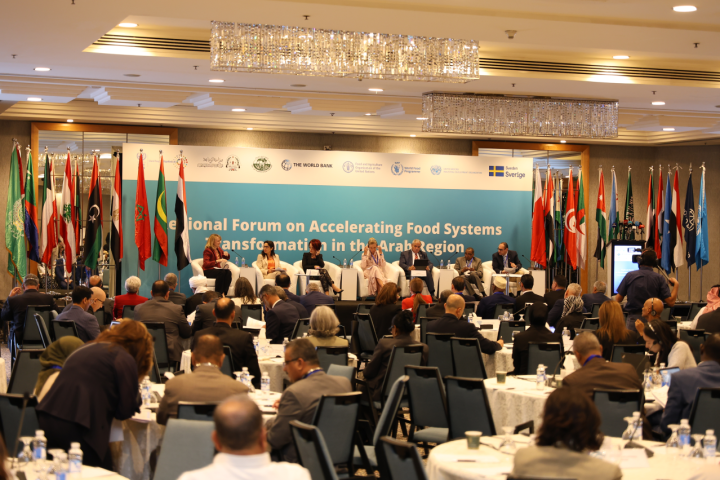In Lebanon, the agri-food sector, namely small women cooperatives working in food processing, faces several challenges in sustaining their production and effectively marketing their food products while ensuring good quality production. Therefore, ESCWA organized in July a training workshop on “Agricultural Green Technologies” in the Lebanese town of Qab Elias, targeting local women cooperatives working in the agri-food sector.
“The workshop aims at strengthening capacities of women cooperatives working in the agri-food sector in the Bekaa region in Lebanon,” Reem Najdawi, Head of Food and Environment Policy Section at ESCWA, underscored. “This will help improve their production and explore the possibility of producing new food products with good marketing potential, thus contributing to ensuring a more sustainable and resilient agri-food sector,” she added.
Participants learnt about five green agricultural technologies that promote sustainable use of natural resources and improve agricultural production. These technologies include rainwater harvesting, green fertilizers, small-scale food processing, food bio-conservation. They were also introduced to solar dryers, their applications and technical requirements as an alternative green drying technology proven to produce good quality products.
Meanwhile, Jihad Mouallem, mayor of Qab Elias, dubbed ESCWA project as “pioneering” and urged all stakeholders to continue supporting producers and manufacturers in improving these significant productions.
The workshop also covered other topics related to food safety and hygiene, innovation, creativity, marketing, business and value chain development.
The workshop was organized in cooperation with the United Nations Industrial Development Organization (UNIDO), the municipality of Qab Elias, the Agri-Food Technical Institute of Qab Elias, and the “SAWA Association for Development”, and falls under an ESCWA project on “Enhancing resilience and sustainability of agriculture in the Arab region” aimed at enhancing relevant national capacities in Jordan, Lebanon, and Palestine, by producing training material, conducting capacity building workshops, and developing sustainable food value chains.




